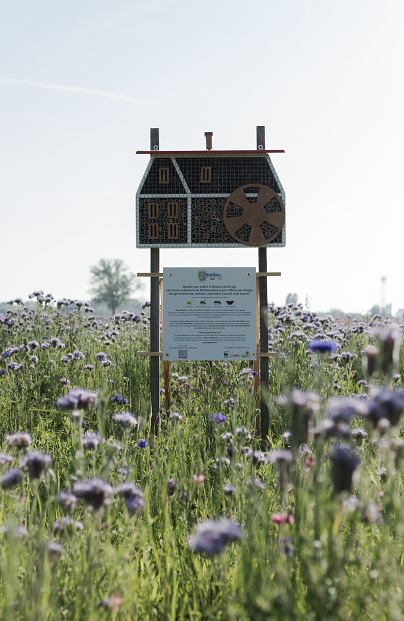This website uses cookies so that we can provide you with the best user experience possible. Cookie information is stored in your browser and performs functions such as recognising you when you return to our website and helping our team to understand which sections of the website you find most interesting and useful.
Ca’Bolani steps up its sustainability drive
From solar panels and ‘green’ manure to planting nectar-producing flowers in the vineyard, the Zonin-owned wine estate is ramping up its sustainability efforts.

At Ca’Bolani, the Zonin family’s estate in Friuli, there is a deep commitment to growing grapes and making wine in the most sustainable way possible. It is enshrined in a set of five ‘essential values’ that all include respect for nature, tradition, culture and history. This is coupled with a love for what Zonin describes as “a beautiful winegrowing district nestled between the arc of the Alps and the Adriatic Sea.”
Climate change is a real and and ever-pressing issue here as it is on any wine estate, and Ca’Bolani’s winemaker, Roberto Marcolini, believes there are two key elements to consider. “There is what we can do to slow down this phenomenon, and what we can do to adapt ourselves and our vineyards to it,” he says. How best to use water obviously plays a key part in this.
“We are on a plain that is rich in underground water, so it is really important to us to prevent water pollution of our land,” he says. Where chemical treatments are required in the vineyards only those with the lowest environmental impact are used, “and we make sure not to spray more than what is strictly necessary on the grapes,” he adds.
Great care is taken to dispose of any chemical residue in the sprayers in the most eco-sensitive way possible using the so-called phytobac system “which works the same way as wetlands work in nature,” Marcolini explains.
“Our spring water is at a constant temperature of 10C˚ all year round, and we use it to keep temperatures down in the cellar.” Meanwhile the roofs of the cellars have all been fitted with solar panels which now provide almost 50% of the energy required by Ca’Bolani.
The estate is equally committed to protecting and supporting biodiversity on its land. With this in mind, green manuring is practiced in the vineyards and grass is left to grow between the rows of vines. And since last year there has also been a programme of planting nectar-producing flowers in autumn to feed the pollinating insects. The aim is to make Ca’Bolani a real haven for honeybees.
“These are just some of the many little things we can do in order to help keep the environment as natural and healthy as we can,” says Marcolini. “They have enabled us to achieve many goals on our path towards ever greater sustainability.”

Related news
Vivino’s crowd reviews gain credibility in Cambridge study
Perrier-Jouët combines art and biodiversity in Ambonnay vineyard

